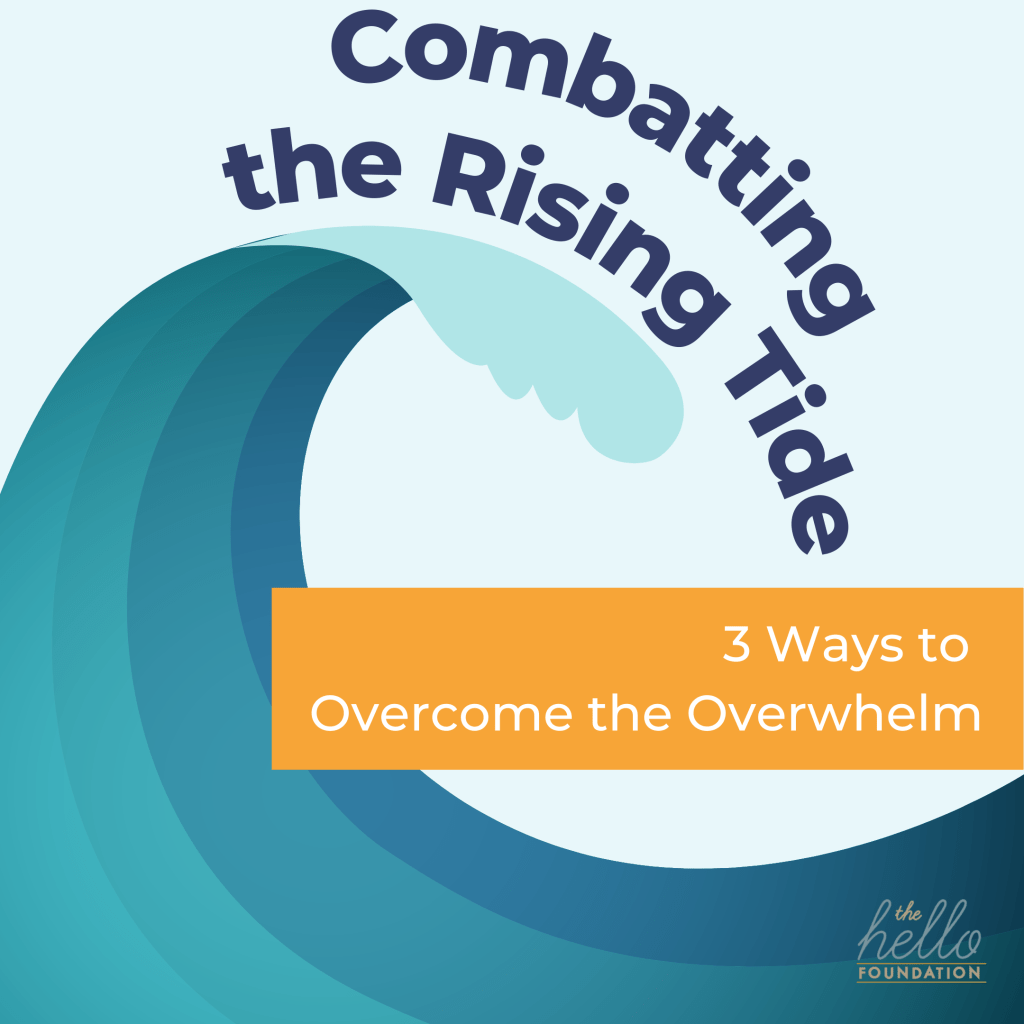Overwhelm can strike anyone. It’s the feeling you get when there are so many needs competing for your time that it is impossible to meet any of them. Many of us deal with it, whether intermittently or chronically, and it can feel incredibly isolating and even hopeless when it’s at its peak. One of the worst parts about being in a state of overwhelm is that it directly impacts the kind of cognitive work you need to do to get yourself out of it! Consider this, from The Harvard Business Review:
The cognitive impact of feeling perpetually overwhelmed can range from mental slowness, forgetfulness, confusion, difficulty concentrating or thinking logically, to a racing mind or an impaired ability to problem solve. When we have too many demands on our thinking over an extended period of time, cognitive fatigue can also happen, making us more prone to distractions and our thinking less agile.
Regardless of where it comes from or how often you experience it, you’ll be more confident in combatting the rising tide if you’ve got some tools under your belt. Here are 3 ways you can start to overcome the dreaded overwhelm:

Keep a running list of things you need to do
This might seem basic, but it is essential to managing overwhelm. Trying to hold onto everything in your head takes up valuable brain space that you could be using to manage solutions. Once you have your list, take 5 minutes at the beginning and end of each day to look at it, and then determine what needs to be done first. Some things such as evaluations seem overwhelming because they involve so many parts, so it can be helpful to write all of those parts on the list. For example, rather than just writing “Do Adrian’s eval” on your list, add sub-items like “get consent,” “email teacher to schedule,” “test artic,” “start report,” “finish report” and so on. This will help you do a little bit at a time to keep the train moving, and will help you see your progress towards the bigger goal.
Communicate with your team/supervisor what you are able to complete, and be honest about timelines
Now that you have your list, use it to set boundaries and expectations with your team and supervisor. It’s perfectly fine to let your team know what you are working on now, and when they can expect other things to be finished. A simple email such as “Thanks for letting me know! I will get back to you on this by the end of the week!” can give you space to address what needs to be done without feeling pressed for time. This can also help you avoid going down rabbit holes — a teacher stopping you in the hallway to listen to a student is something to follow up on, but it may not be the best use of your time that day. Write it down and let them know that you’ll come back to it later.
Agree on priorities
Sometimes we make that to-do list and the overwhelm actually gets worse because everything on it is mandatory and needs to be done right now. When this happens, forcing the creation of a list where some mandatory things are more important than other mandatory things is critical to getting ourselves into a place where we can move forward. If you’ve determined that you do not have enough time to do your job, communicate this with your supervisor. They can work with you to determine what needs to be done first, and what needs to wait. “Agree” is the most important word in this step, though! The priorities have to be both something we can live with and something the other party (i.e. team members, managers, employers) can live with. Our top priority might be sticking to our therapy schedule since we really don’t want to tell teachers that we’re changing their schedule or not seeing their students. But our administrator might decide that holding meetings on time or meeting evaluation timelines is the district’s top priority. We need to find agreement on how to prioritize tasks so that everyone feels if not good, at least united in how the workload is going to be approached.
And when all of the above still doesn’t help, try to think of the school year as a marathon, not a sprint. Set your own pace for how and when you get things done. Of course, sometimes we need to kick it into high gear for late-notice meetings or evaluations. That’s just part of the job. But most of the time, try to keep a slow and steady pace. One foot in front of the other, taking good care of yourself first and foremost, remembering that you can’t fill others’ cups from an empty bucket. You will come home each day feeling less frazzled and avoid burnout, which means you’ll be able to help more kids in the long run. And isn’t that what it’s really all about?





